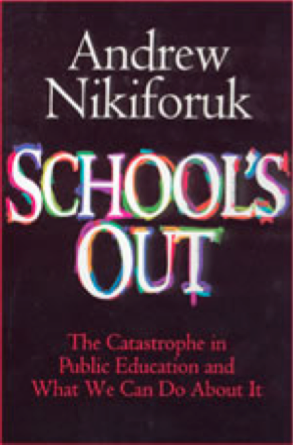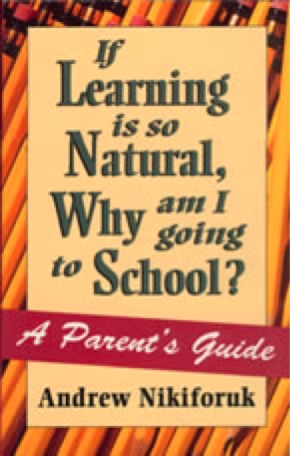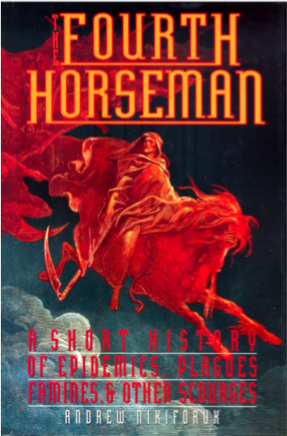2009 Winner: Tar Sands: Dirty Oil and the Future of a Continent
The City of Calgary W.O. Mitchell Book Prize
What is The City of Calgary W.O. Mitchell Book Prize? The City of Calgary established this prize, in honour of renowned Calgary writer W.O. Mitchell, to recognize literary achievement by Calgary authors. The $5,000 prize is awarded each year for an outstanding book published in the award year and is paid to the winning author by The City of Calgary in the spring. If the winning book has more than one author, the prize money is divided equally among them.
The prize is administered through a partnership between The City of Calgary and the Writers Guild of Alberta. A three-person jury from the Canadian literary community judges all entries and selects the winner for confirmation by The Calgary Awards Committee. The jury is made up of a Calgarian, an Albertan from outside Calgary, and a Canadian from outside Alberta.
For additional information about The City of Calgary W.O. Mitchell Book Prize, contact the Writers Guild of Alberta at 1-800-665-5354.
Download a free excerpt from Tar Sands by Andrew Nikiforuk
Declaration of a Political Emergency
The City of Calgary W.O. Mitchell Book Prize
What is The City of Calgary W.O. Mitchell Book Prize? The City of Calgary established this prize, in honour of renowned Calgary writer W.O. Mitchell, to recognize literary achievement by Calgary authors. The $5,000 prize is awarded each year for an outstanding book published in the award year and is paid to the winning author by The City of Calgary in the spring. If the winning book has more than one author, the prize money is divided equally among them.
The prize is administered through a partnership between The City of Calgary and the Writers Guild of Alberta. A three-person jury from the Canadian literary community judges all entries and selects the winner for confirmation by The Calgary Awards Committee. The jury is made up of a Calgarian, an Albertan from outside Calgary, and a Canadian from outside Alberta.
For additional information about The City of Calgary W.O. Mitchell Book Prize, contact the Writers Guild of Alberta at 1-800-665-5354.
Download a free excerpt from Tar Sands by Andrew Nikiforuk
Declaration of a Political Emergency
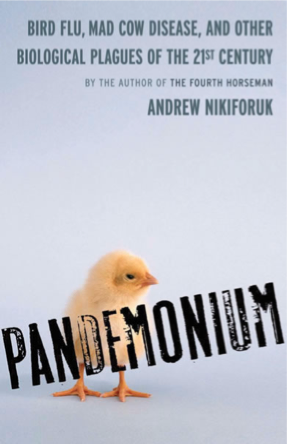
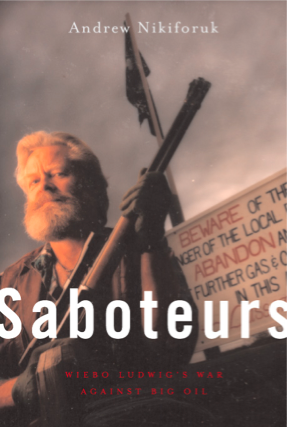
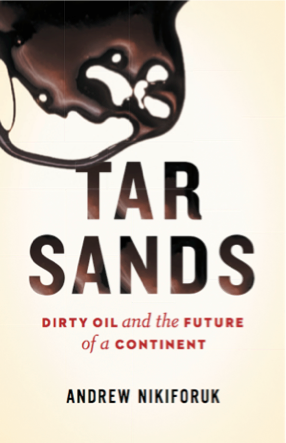
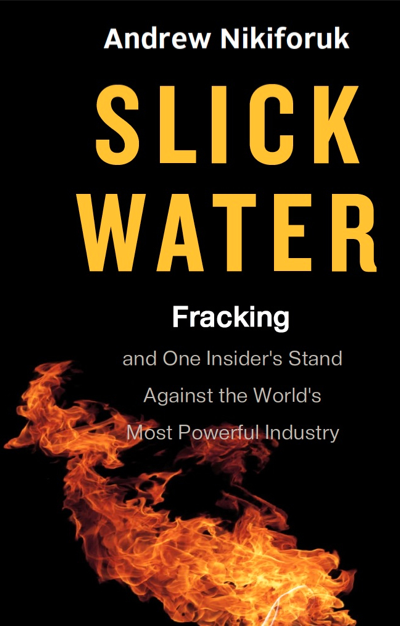
“Andrew Nikiforuk crafts a stunning picture of fossil fuel industry and government abuse”
-Naomi Klein, author of This Changes Everything
Slick Water is a true-life noir filled with corruption, incompetence, and, ultimately, courage. It is a deeply informative, disturbing, and important book.
-Elizabeth Kolbert, 2015 Pulitzer Prize Winning author of The Sixth Extinction
-Naomi Klein, author of This Changes Everything
Slick Water is a true-life noir filled with corruption, incompetence, and, ultimately, courage. It is a deeply informative, disturbing, and important book.
-Elizabeth Kolbert, 2015 Pulitzer Prize Winning author of The Sixth Extinction
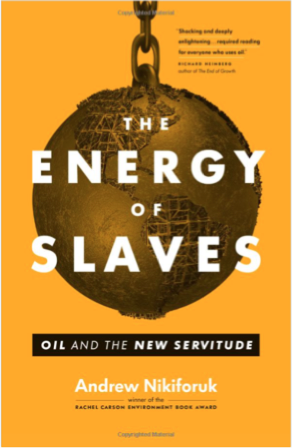
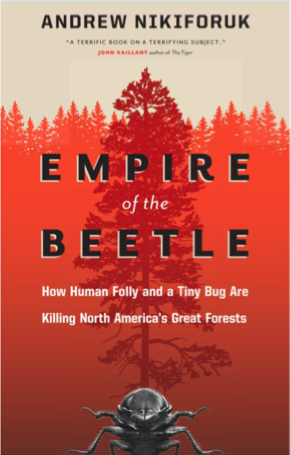
Reviews
"Read this book, be entertained, be ashamed, and then do something to stop the insanity."
Thomas-Homer Dixon, author of The Upside of Down
"Passionate and forcefully argued, Tar Sands is a wake-up call not just to Canadians but to the wider world to take a serious look at what is happening in northern Alberta. To call this book a polemic is a compliment."
Margaret MacMillan, author of Paris 1919
"Andrew Nikiforuk is one of the most astute, relentless and original writers of his generation. This book, which reveals the true cost of the Alberta tar sands, shows why he's so admired in some quarters and so feared in others."
Gary Stephen Ross, Editor-in-chief, Vancouver Magazine
Overview
Tar Sands critically examines the frenzied development in the Canadian tar sands and the far-reaching implications for all of North America. Bitumen, the sticky stuff that ancients used to glue the Tower of Babel together, is the world’s most expensive hydrocarbon. This difficult-to-find resource has made Canada the number-one supplier of oil to the United States, and every major oil company now owns a lease in the Alberta tar sands. The region has become a global Deadwood, complete with rapturous engineers, cut-throat cocaine dealers, Muslim extremists, and a huge population of homeless individuals.
In this award-winning book, a Canadian bestseller, journalist Andrew Nikiforuk exposes the disastrous environmental, social, and political costs of the tar sands, arguing forcefully for change. This updated edition includes new chapters on the most energy-inefficient tar sands projects (the steam plants), as well as new material on the controversial carbon cemeteries and nuclear proposals to accelerate bitumen production.
"Read this book, be entertained, be ashamed, and then do something to stop the insanity."
Thomas-Homer Dixon, author of The Upside of Down
"Passionate and forcefully argued, Tar Sands is a wake-up call not just to Canadians but to the wider world to take a serious look at what is happening in northern Alberta. To call this book a polemic is a compliment."
Margaret MacMillan, author of Paris 1919
"Andrew Nikiforuk is one of the most astute, relentless and original writers of his generation. This book, which reveals the true cost of the Alberta tar sands, shows why he's so admired in some quarters and so feared in others."
Gary Stephen Ross, Editor-in-chief, Vancouver Magazine
Overview
Tar Sands critically examines the frenzied development in the Canadian tar sands and the far-reaching implications for all of North America. Bitumen, the sticky stuff that ancients used to glue the Tower of Babel together, is the world’s most expensive hydrocarbon. This difficult-to-find resource has made Canada the number-one supplier of oil to the United States, and every major oil company now owns a lease in the Alberta tar sands. The region has become a global Deadwood, complete with rapturous engineers, cut-throat cocaine dealers, Muslim extremists, and a huge population of homeless individuals.
In this award-winning book, a Canadian bestseller, journalist Andrew Nikiforuk exposes the disastrous environmental, social, and political costs of the tar sands, arguing forcefully for change. This updated edition includes new chapters on the most energy-inefficient tar sands projects (the steam plants), as well as new material on the controversial carbon cemeteries and nuclear proposals to accelerate bitumen production.
Review
"Our overwhelming societal dependence on oil is usually discussed in economic terms. This book looks at our Promethean petro-prowess through an ethical lens, and the result is both shocking and deeply enlightening. This is required reading for everyone who uses oil (do you know anyone who doesn't?)."
—Richard Heinberg, Senior Fellow, Post Carbon Institute, and author of The End of Growth and The Party’s Over.
Overview
Ancient civilizations routinely relied on shackled human muscle. It took the energy of slaves to plant crops, clothe emperors, and build cities. In the early 19th century, the slave trade became one of the most profitable enterprises on the planet. Economists described the system as necessary for progress. Slaveholders viewed religious critics as hostilely as oil companies now regard environmentalists. Yet the abolition movement that triumphed in the 1850s had an invisible ally: coal and oil. As the world's most portable and versatile workers, fossil fuels replenished slavery's ranks with combustion engines and other labor-saving tools. Since then, oil has changed the course of human life on a global scale, transforming politics, economics, science, agriculture, gender, and even our concept of happiness. But as best-selling author Andrew Nikiforuk argues in this provocative book, we still behave like slaveholders in the way we use energy, and that urgently needs to change. Cheap oil transformed the United States from a resilient republic into a global petroleum evangelical, then a sickly addict. Modern economics owes its unrealistic models to fossil fuels. On the global stage, petroleum has fueled a demographic explosion, turning 1 billion people into 7 billion in just a hundred years.
"Our overwhelming societal dependence on oil is usually discussed in economic terms. This book looks at our Promethean petro-prowess through an ethical lens, and the result is both shocking and deeply enlightening. This is required reading for everyone who uses oil (do you know anyone who doesn't?)."
—Richard Heinberg, Senior Fellow, Post Carbon Institute, and author of The End of Growth and The Party’s Over.
Overview
Ancient civilizations routinely relied on shackled human muscle. It took the energy of slaves to plant crops, clothe emperors, and build cities. In the early 19th century, the slave trade became one of the most profitable enterprises on the planet. Economists described the system as necessary for progress. Slaveholders viewed religious critics as hostilely as oil companies now regard environmentalists. Yet the abolition movement that triumphed in the 1850s had an invisible ally: coal and oil. As the world's most portable and versatile workers, fossil fuels replenished slavery's ranks with combustion engines and other labor-saving tools. Since then, oil has changed the course of human life on a global scale, transforming politics, economics, science, agriculture, gender, and even our concept of happiness. But as best-selling author Andrew Nikiforuk argues in this provocative book, we still behave like slaveholders in the way we use energy, and that urgently needs to change. Cheap oil transformed the United States from a resilient republic into a global petroleum evangelical, then a sickly addict. Modern economics owes its unrealistic models to fossil fuels. On the global stage, petroleum has fueled a demographic explosion, turning 1 billion people into 7 billion in just a hundred years.
Reviews
"Nikiforuk leavens this tragic, instructive history with curious facts about the complex, intelligent insect"
—Publishers Weekly
"Sometimes called the "Katrina of the West," these infestations received very little publicity but caused the loss of millions of dollars worth of lumber ...Well written and informative... Highly Recommended"
— Choice Reviews
“A terrific book on a terrifying subject... a chilling, fascinating, and important contribution to our understanding of a rapidly changing world.”
— John Vaillant, author of The Tiger and The Golden Spruce
"A compelling look at what may be the single biggest impact of climate change, and a harbinger of life to come on a warming planet."
—Jim Robbins, Science Journalist, The New York Times
"Empire of the Beetle is a work of great skill and passion, and vital to anyone courageous enough to be interested in the ecology of the future."
—Rick Bass, author of Winter: Notes From Montana
“[T]he Iliad of the bark beetles. It really demonstrates how intertwined nature is... as Andrew shows so well, we are part of nature.”
—John Perlin, leading U.S. solar energy expert and author of A Forest Journey
Overview
Beginning in the late 1980s, a series of improbable bark beetle outbreaks unsettled iconic forests and communities across western North America. An insect the size of a rice kernel eventually killed more than 30 billion pine and spruce trees from Alaska to New Mexico. Often appearing in masses larger than schools of killer whales, the beetles engineered one of the world's greatest forest die-offs since the deforestation of Europe by peasants between the eleventh and thirteenth centuries.
The beetle didn't act alone. Misguided science, out-of-control logging, bad public policy, and a hundred years of fire suppression created a volatile geography that released the world's oldest forest manager from all natural constraints. Like most human empires, the beetles exploded wildly and then crashed, leaving in their wake grieving landowners, humbled scientists, hungry animals, and altered watersheds. Although climate change triggered this complex event, human arrogance assuredly set the table. With little warning, an ancient insect pointedly exposed the frailty of seemingly stable manmade landscapes.
Drawing on first-hand accounts from entomologists, botanists, foresters, and rural residents, award-winning journalist Andrew Nikiforuk, investigates this unprecedented beetle plague, its startling implications, and the lessons it holds.
"Nikiforuk leavens this tragic, instructive history with curious facts about the complex, intelligent insect"
—Publishers Weekly
"Sometimes called the "Katrina of the West," these infestations received very little publicity but caused the loss of millions of dollars worth of lumber ...Well written and informative... Highly Recommended"
— Choice Reviews
“A terrific book on a terrifying subject... a chilling, fascinating, and important contribution to our understanding of a rapidly changing world.”
— John Vaillant, author of The Tiger and The Golden Spruce
"A compelling look at what may be the single biggest impact of climate change, and a harbinger of life to come on a warming planet."
—Jim Robbins, Science Journalist, The New York Times
"Empire of the Beetle is a work of great skill and passion, and vital to anyone courageous enough to be interested in the ecology of the future."
—Rick Bass, author of Winter: Notes From Montana
“[T]he Iliad of the bark beetles. It really demonstrates how intertwined nature is... as Andrew shows so well, we are part of nature.”
—John Perlin, leading U.S. solar energy expert and author of A Forest Journey
Overview
Beginning in the late 1980s, a series of improbable bark beetle outbreaks unsettled iconic forests and communities across western North America. An insect the size of a rice kernel eventually killed more than 30 billion pine and spruce trees from Alaska to New Mexico. Often appearing in masses larger than schools of killer whales, the beetles engineered one of the world's greatest forest die-offs since the deforestation of Europe by peasants between the eleventh and thirteenth centuries.
The beetle didn't act alone. Misguided science, out-of-control logging, bad public policy, and a hundred years of fire suppression created a volatile geography that released the world's oldest forest manager from all natural constraints. Like most human empires, the beetles exploded wildly and then crashed, leaving in their wake grieving landowners, humbled scientists, hungry animals, and altered watersheds. Although climate change triggered this complex event, human arrogance assuredly set the table. With little warning, an ancient insect pointedly exposed the frailty of seemingly stable manmade landscapes.
Drawing on first-hand accounts from entomologists, botanists, foresters, and rural residents, award-winning journalist Andrew Nikiforuk, investigates this unprecedented beetle plague, its startling implications, and the lessons it holds.
Overview
Our health and habitat are being threatened by biological invaders moving at unprecedented speed. Avian flu and its potential to cause a human pandemic is only one example of a worldwide menace unwittingly unleashed by the forces of globalization. The combination of unfettered free trade in living organisms, increased mobility, and urban crowding has created an increasingly volatile environment for the world’s 6.5 billion people. Nikiforuk argues that it shouldn’t take a pandemic to make us rethink the deadly pace of globalization and biological traffic. Authoritative and wide-ranging, Pandemonium is a clear-eyed guide to instability, unpredictability, and the hidden biological terrorist on our doorstep.
Our health and habitat are being threatened by biological invaders moving at unprecedented speed. Avian flu and its potential to cause a human pandemic is only one example of a worldwide menace unwittingly unleashed by the forces of globalization. The combination of unfettered free trade in living organisms, increased mobility, and urban crowding has created an increasingly volatile environment for the world’s 6.5 billion people. Nikiforuk argues that it shouldn’t take a pandemic to make us rethink the deadly pace of globalization and biological traffic. Authoritative and wide-ranging, Pandemonium is a clear-eyed guide to instability, unpredictability, and the hidden biological terrorist on our doorstep.
Winner of the 2002 Governor General's
Literary Award for Nonfiction
Winner of the 2002 Arthur Ellis Award for Best True Crime
Winner of the W.O. Mitchell City of Calgary Book Prize
Finalist for the Wilfred Eggleston Award for Nonfiction
Review
"The most important non-fiction book released in Canada this year."
–Calgary Herald
"Saboteurs presents a grisly catalogue of the effects of hydrogen sulphide and flaring…Nikiforuk privides an eloquent and persuasive voice for all downwinders."
–Globe and Mail
"Andrew Nikiforuk does a masterful job of taking the reader, step-by-crucial step, through an extremely complex story. He builds a real mystery thriller out of a slice of someone's life – a difficult, acrimonious someone, but someone nevertheless."
–Wayne Skene, Edmonton Journal
Overview
At Trickle Creek in northern Alberta, Wiebo Ludwig thought he’d buffered his tiny religious community from civilization, but in 1990 civilization came calling. A Calgary oil company proposed to drill directly in view of the farm’s communal dining room. Ludwig wrote letters, petitioned, forced public hearings, and discovered the provincial regulator cared little about landowners. After the oil company accidentally vented raw sour gas, Ludwig’s wife miscarried. Hostilities against the oil company began with nails on the roads, sabotaged well sites, and road blockades. They culminated in death threats, shootings, and bombings. The RCMP recruited a Ludwig acolyte as an informant, and in an attempt to establish the man’s credibility the police themselves blew up an equipment shack. Ludwig was charged with 19 counts of mischief, vandalism, and possession of explosives, and he was later convicted on five charges. This taut work of nonfiction, first published in 2002, won both a Governor General’s Award and the Arthur Ellis Award for True Crime Writing. With the escalation of oil and gas extraction over the past decade, the unsettling questions Saboteurs raises about individual rights, corporate power, police methods, and government accountability are more relevant than ever.
Literary Award for Nonfiction
Winner of the 2002 Arthur Ellis Award for Best True Crime
Winner of the W.O. Mitchell City of Calgary Book Prize
Finalist for the Wilfred Eggleston Award for Nonfiction
Review
"The most important non-fiction book released in Canada this year."
–Calgary Herald
"Saboteurs presents a grisly catalogue of the effects of hydrogen sulphide and flaring…Nikiforuk privides an eloquent and persuasive voice for all downwinders."
–Globe and Mail
"Andrew Nikiforuk does a masterful job of taking the reader, step-by-crucial step, through an extremely complex story. He builds a real mystery thriller out of a slice of someone's life – a difficult, acrimonious someone, but someone nevertheless."
–Wayne Skene, Edmonton Journal
Overview
At Trickle Creek in northern Alberta, Wiebo Ludwig thought he’d buffered his tiny religious community from civilization, but in 1990 civilization came calling. A Calgary oil company proposed to drill directly in view of the farm’s communal dining room. Ludwig wrote letters, petitioned, forced public hearings, and discovered the provincial regulator cared little about landowners. After the oil company accidentally vented raw sour gas, Ludwig’s wife miscarried. Hostilities against the oil company began with nails on the roads, sabotaged well sites, and road blockades. They culminated in death threats, shootings, and bombings. The RCMP recruited a Ludwig acolyte as an informant, and in an attempt to establish the man’s credibility the police themselves blew up an equipment shack. Ludwig was charged with 19 counts of mischief, vandalism, and possession of explosives, and he was later convicted on five charges. This taut work of nonfiction, first published in 2002, won both a Governor General’s Award and the Arthur Ellis Award for True Crime Writing. With the escalation of oil and gas extraction over the past decade, the unsettling questions Saboteurs raises about individual rights, corporate power, police methods, and government accountability are more relevant than ever.
